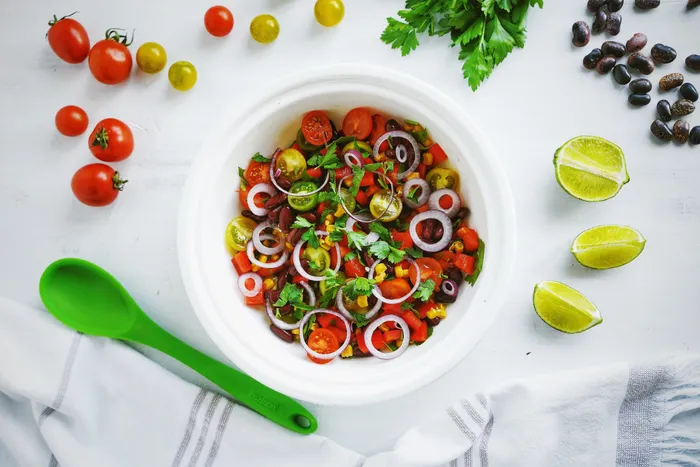What are heirloom tomatoes and why the fuss?

Heirloom tomatoes are special for several reasons. Picture: Pexels/Olena Bohovyk
We South Africans have a special relationship with heirloom tomatoes. They star in so many of our favourite seasonal dishes, from stunning tomato pies and soups to humble tomato sandwiches.
One of the many beautiful things about heirloom tomatoes is that you do not need to do much for them to taste great.
They are not your average grocery store tomatoes as they come in a rainbow of colours and flavours, from sweet and tangy to smoky and rich.
But what exactly makes them so special? And why are people so passionate about preserving them?

Heirloom tomatoes are special for several reasons. First and foremost, they offer a depth of flavour and texture that is hard to find in hybrid tomatoes.
Because heirloom tomatoes have not been cross-bred with other varieties, they often have a stronger, more complex flavour profile, with hints of sweetness, acidity and umami.
In addition to their culinary appeal, heirloom tomatoes have a rich history and cultural significance. Another speciality is that they are seasonal, meaning that they can be found at your local farmers’ market from late summer into the early autumn.
But the real secret is in the name - the seeds of these “heirloom” tomatoes are passed down from season to season through generations of farmers.
There are many different heirloom tomatoes available. Many have been unfortunately lost, but many were saved as well.
You can buy them at local farm stands and farmer’s markets and supermarkets. A few favourite varieties at the local farmers' market are the azoychka, black cherry, black krim and Brandywine.
Why are they so expensive? They are a bit pricey because they are not mass-produced. With fewer available (than hybrids), their price typically stays high. Heirlooms are not disease resistant, their vines produce less per acre than hybrid varieties, and they do not travel well.
I find it is best to think of heirloom tomatoes as a short-term treat for the summer.
For inspiration, here is a quick and easy recipe to try at home using heirloom tomatoes, courtesy of chef Ryan Ratino.

Kale and cashew pesto with ciabatta and heirloom tomatoes
Serves: 4-6
This is bruschetta so savoury and satisfying that you could make it a meal.
The pesto can be refrigerated a day in advance; bring it to room temperature before using. Assemble the slices shortly before serving.
Ingredients
For the pesto
¾ cup packed kale leaves (stemmed)
12 basil leaves
½ cup raw cashews
1 clove garlic
¼ cup fresh lemon juice (from 1 large lemon), or more as needed
3 tbsp olive oil
½ to 1 tsp kosher salt, or more as needed
Flesh of ½ ripe avocado
For the ciabatta
473g small heirloom tomatoes, cut into quarters
6 tbsp extra-virgin olive oil
6 tbsp white balsamic vinegar
2 tbsp honey
1 tsp kosher salt
226g to 240g portion of ciabatta (may substitute focaccia bread)
Basil leaves, torn, for garnish
Cracked black pepper, for garnish
For the pesto
Combine the kale and basil leaves, cashews, garlic, lemon juice, oil, salt (to taste) and avocado in a food processor; pulse just long enough to create a loose, pesto-like consistency with no large chunks. Taste and add salt and or lemon juice, as needed.
For the ciabatta
Place the tomatoes in a mixing bowl.
Whisk together the oil, vinegar, honey and salt in a liquid measuring cup, until well incorporated, then pour over the tomatoes and toss gently to coat.
Cut the ciabatta crosswise into 1cm slices, arranging them on a platter.
Place a good-sized dollop of the pesto on top of each one, spreading it with a table knife.
Top with some of the marinated tomatoes and garnish with torn basil leaves and cracked black pepper.